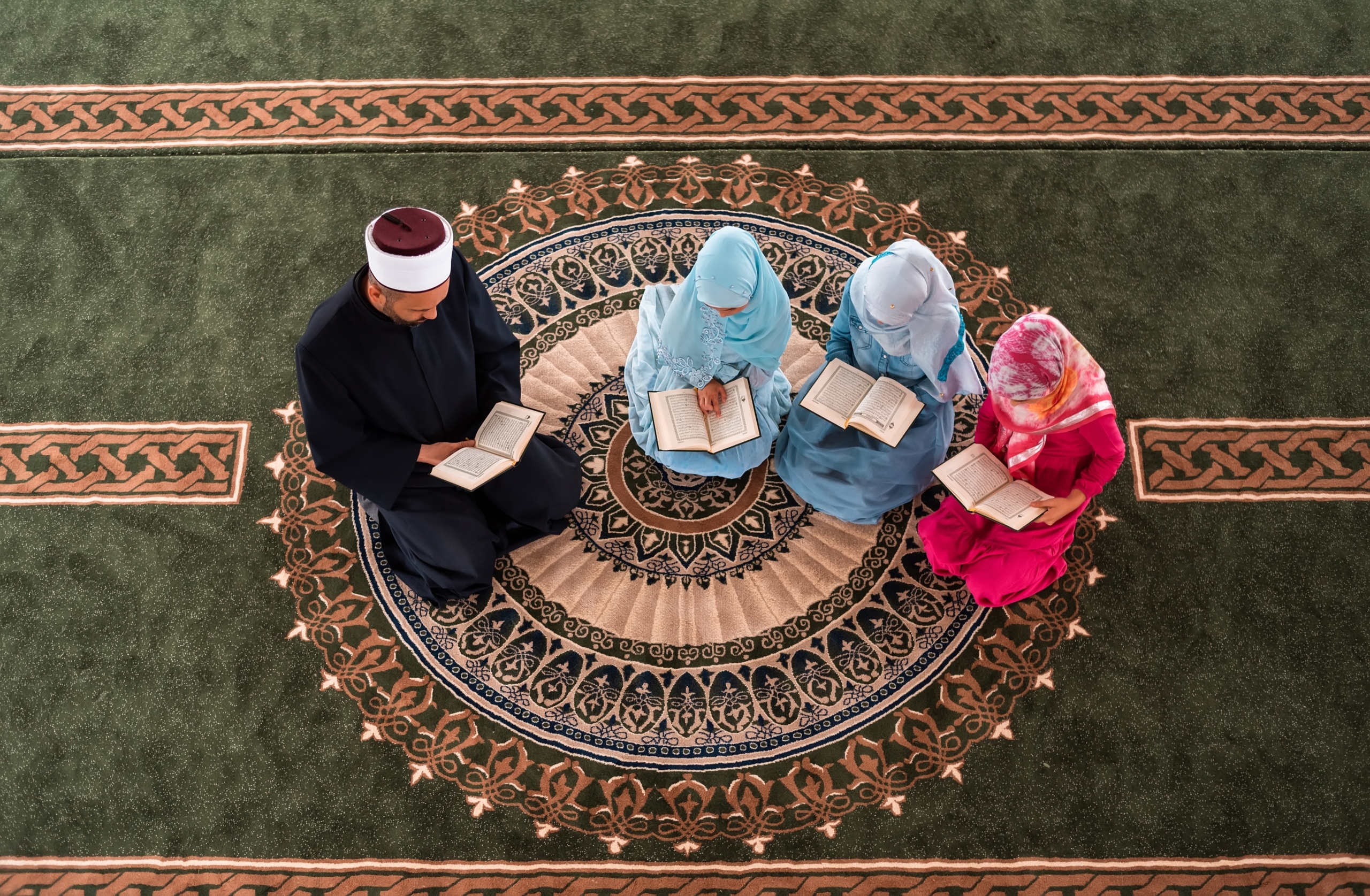Nurturing Love for Ramadan: A Parent’s Guide by Shaykh Walead Mosaad
by Nour Merza
Cultivating a Warmth for Muslim Holidays
A crackling fireplace. Cookies and milk on the table. A brightly-lit tree crowned with a star and surrounded by gifts. Few of us have grown up without these images of Christmas. Similarly, few of us have grown up with such warm images of Muslim holidays. In fact, in today’s environment, Muslim children are repeatedly faced with a stern, intolerant Islam that has no room for such frivolities.
This is no fertile ground in which young, believing hearts can grow.
Creating an Enriching Environment: Shaykh Walead’s Insights
How can we, as Muslim parents, create an environment that does? One way is through a thoughtful approach to Muslim holidays – particularly Ramadan. Below, Shaykh Walead Mosaad, SeekersGuidance teacher and scholar-in-residence at Sakina Collective, explores how we can build our children’s love for Islam through participation in this blessed month.
Fostering Fasting: Balancing Participation and Ease
Fasting is perhaps the first thing that comes to mind when considering participation in Ramadan. Although scholars differ on if and how children should practice fasting before puberty, Shaykh Walead said it is important to do so in a way that encourages participation in the month without making it too difficult.
“Do a half-day, or just one day (periodically),” said Shaykh Walead, if full-time fasting is too difficult. “At the very least, you can delay their dinner so they feel they are participating.”
Social Aspects of Fasting: Strengthening Community Bonds
Giving fasting a social aspect also helps make it enjoyable for children who don’t appreciate the higher meanings of this form of worship. Traditionally, Ramadan brought communities together – it was not practiced in isolation. Many of our societies today have lost the sense of community that brings warmth and joy to the month. Taking time out of our busy schedules to plan and go to periodic gatherings with friends and family to break the fast helps make the month memorable for children.
Cultural Engagement: Connecting Traditions with Faith
Engaging children in activities traditionally associated with Ramadan in one’s culture is also helpful. Offering them special sweets or engaging in special dhikrs usually reserved for this month – which differ from culture to culture – highlight Ramadan as a unique time. Moreover, they help make Islam a living tradition they can relate to rather than a set of abstract ideas divorced from everyday life.
“Islamic practice is steeped in culture; you can’t practice Islam outside of culture,” said Shaykh Walead. “One of the things that extremists try to convince you of is all that is insignificant, or it corrupts the deen. But when you leave the deen as a set of ideas that you implement any way you want, it leads to a form of extremism.”
Navigating Cultural and Commercial Influences
For those living in the West, where authentic local expressions of Islam are still being formed, this is an issue that religious and community leaders must work diligently to address, said Shaykh Walead.
Some people have welcomed the move of stores such as Macy’s in the U.S. to do Ramadan promotions and advertisements to make Ramadan an accepted part of Western culture. But in making Ramadan relevant to young Muslims, our communities must be careful about moving in the direction many other holidays – such as Christmas and Easter – have gone in the West: that of commercialization.
“Highly commercial activities are a celebration of the self, while Ramadan traditionally is a celebration of Allah,” said Shaykh Walead. Commercially-driven campaigns relating to Ramadan often promote a self-indulgence that rubs uncomfortably against the virtue of restraint that the month is about.
Some ways of making the month enjoyable for children without the negative impacts of commercialization include engaging them in arts and crafts, such as teaching them calligraphy or making the brightly colored Ramadan lamps known as fawanees.
Cultivating Spiritual Depth: Balancing Joy with Restraint
While striving to make the month enjoyable for our children, it is important to remember that, ultimately, this is a month of moving closer to God through learning self-control and self-restraint. For example, the lamp-building activity mentioned above could be coupled with less screen time on various electronic devices. Some of the time spent normally in play could be used to begin a habit of daily interaction with the Quran.
Universal Values: Emphasizing Love and Service
Finally, focusing on the universal meanings of love and service to others, as exemplified by the Prophet Muhammad (peace be upon him), greatly benefits this month. When appropriately practiced, Islam is ultimately an expression of good character, and making that clear to children gives them confidence in the moral calling of this faith that nothing else can.
“Islam is not just the sum of religious practices,” said Shaykh Walead. “It is not just the five pillars – it is built on the five pillars. They are the anchors that bring out all the beautiful things about Islam.”
Through these individual and community efforts, we, as Muslim parents, can teach our children to appreciate Ramadan’s spiritual rigors and joys – helping them build a strong, healthy bond with this religion of love, mercy, and light.
Resources for Seekers:
Raising a Muslim with Manners
Planting the seeds of prayer in our young ones
Prophetic Advice For Raising Righteous Children
Raising Your Children with Deen & Dunya
The Prophet Muhammad’s Love, Concern, & Kindness for Children
On Parents Showing Righteousness to Children
